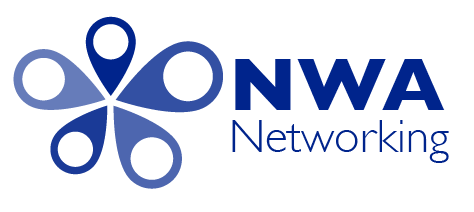When I started networking, I was terrible at it.
Speaking to strangers felt uncomfortable and I didn’t understand how it could bring value to my business. It took several bad experiences to realize that I’d been my own worst enemy. I had mistakenly thought that networking meant pitching my business to as many people as possible. (I’d be more embarrassed about admitting that, but I know I’m not alone.)
There’s some unspoken rules to networking that, when followed, make the experience better for everybody. Some might be obvious (#6) whereas others are just rookie mistakes.
Rather than simply listing what not to do, I have included a fix for every mistake to help get you on the path to networking success.
1. Passing out business cards to every attendee without having a conversation with them first.
This one is so common I’ve made a commitment to offer on-the-spot feedback when it happens to me again. It’s impersonal, which means the person receiving your card is unlikely to have any incentive to contact you or research your business. This tactic isn’t successful for making sales, or establishing your reputation in the community.
Fix – Meet a few people and spend more than 5 minutes getting to know them. Your networking experience will be more successful if you take the time to learn about the people you meet.
2. Adding new acquaintances to your emailing list (without permission)
Although not illegal in the U.S., it is bad practice to add people to an emailing list without their permission. When someone does join a mailing list they should also always have the option to opt out and unsubscribe.
Fix – Use their contact details to invite them to meet for coffee or lunch instead. Unless they express interest in becoming a customer, this next encounter should be used to get to know them better in a professional setting.
3. Dominating the conversation
This one takes some self-reflection. If we’re nervous, or the other party is naturally quiet, it’s easy to move from having a conversation to making a speech. Sometimes we’re just so focused on our own agendas that we don’t even notice that we’re dominating the conversation.
Fix – Networking success comes from listening just as much as talking. Before attending the event, plan to ask a question within the first minute or two of meeting a person. Listen intently to what they say and prepare follow up questions that demonstrate you’ve shown interest in what they’ve told you.
4. Selling to someone you just met
We’ve all been here I think, and it’s a very easy mistake to slip into at a networking event. We’re all there to make important business connections, but it’s rarely beneficial to go into your sales pitch with someone you just met. First of all, you don’t know if they’re the right customer for you, and second, you don’t know if they’re interested.
Fix – Get to know them, as you would try to get to know a prospective client, and if they seem to fit your buyer persona then ask to set up a business meeting in the future. (And follow up!)
5. Interrupting a conversation
You see a friend across the room and want to say hello. They’re engaged in conversation with someone else. It’s tempting to hover, maybe even just outright interrupt their conversation to say hello, but you shouldn’t. Interrupting conversation isn’t just rude, it puts everyone involved in an uncomfortable situation. The person talking has to pause and wait for the interrupter to be done, or might try to continue while the interruption is occurring and the third party isn’t sure where to focus their attention.
Fix – Wait for the conversation to be done. Engage people in the near vicinity and wait your turn to speak with the person. If you do talk to someone else, try not to make a rushed exit, or stare at the other person to see if their conversation is over.
6. Hit on someone
Professional networking events are created so business people can comfortably meet new people and form important connections that might further their career. Unfortunately some use the opportunity to make it personal, invariably causing huge discomfort to attendees.
Fix – Don’t do it. Keep it professional.

Josephine Hardy is the founder of InboundMate, a marketing consultancy that helps small to mid-sized businesses put their brand in front of the right audience. She enjoys combining her passion for writing and marketing with charitable work in the community. In 2017 she established the NWA Professional Women’s Book Club so women could come together and discuss business, entrepreneurship and their experiences in the workplace.

